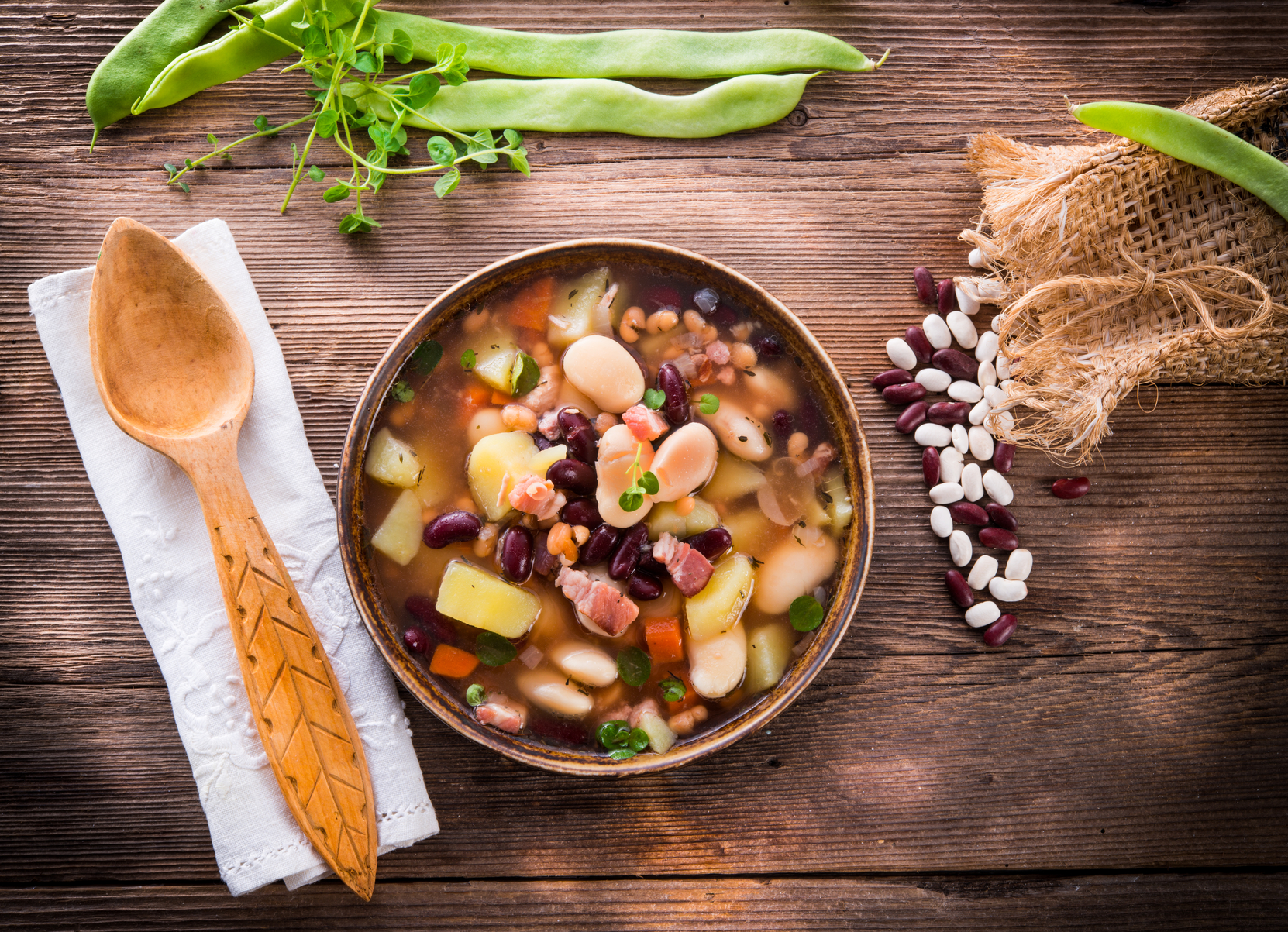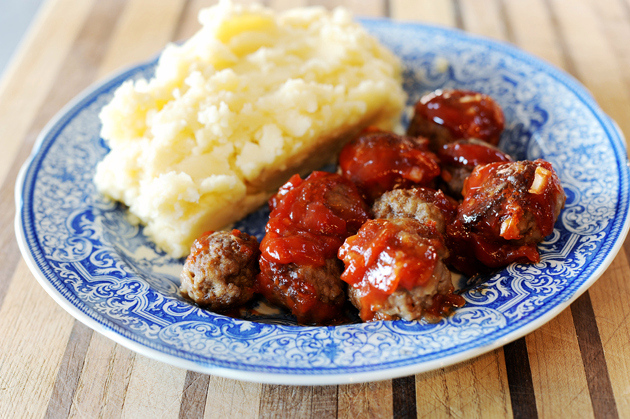Receiving a new diagnosis can be daunting. If you’ve recently been diagnosed with PCOS (polycystic ovary syndrome), you’re probably looking to make some changes so you can get your hormones in balance.
Your doctor may have given you a PCOS diagnosis for a number of reasons: irregular cycles, abnormal hair growth, or maybe problems with fertility. Whatever the reason for the diagnosis, studies show that lifestyle modifications can have the biggest impact on treating PCOS symptoms. That means there are things you can start doing today that will help treat your hormone imbalance and get you loving life.
Reducing the risk factors of obesity and insulin resistance should be top priority in treating PCOS. PCOS may manifest differently depending on the person, but there are changes you can make without medication that can help regulate your cycles, improve fertility, or prevent more long term complications such as type 2 diabetes. The most important things you can do if you’ve been diagnosed with PCOS is to maintain a healthy body weight and keep a good diet.
Here are 10 lifestyle tips to get you started if you’ve been diagnosed with PCOS:
Exercise Regularly
It can be difficult to overcome or reduce insulin resistance when you have PCOS, which in turn affects your ability to maintain a healthy weight. Regular exercise is one of the best ways to reduce your insulin resistance, which is a precursor to type 2 diabetes. Even if you aren’t trying to lose weight, exercising is a good way to improve overall body composition.
Exercising can come in many forms, so don’t feel like you need to get a gym membership if pumping iron isn’t your thing. Adding in walking or some yoga a couple times a week will positively affect your health, physical appearance, and overall mood and confidence. As long as you’re getting your heart rate up in some way, you’re taking steps towards having a healthy active lifestyle. It’s important to find something you enjoy doing so you can keep your exercising consistent.
Want to start exercising more? Check out these exercise tips for PCOS.
Increase Muscle Mass
This tip does not mean you need to get tree trunks for legs or washboard abs, but adding some strength training into your exercise regime can be beneficial for women with PCOS. It takes more energy for your body to maintain muscle than fat, so you will burn more calories while in a resting state if you have a higher percentage of muscle in your body.
Gaining muscle tone also does wonders for your appearance and confidence. Your clothes will fit better and you may start seeing changes to your body shape even before the weigh scale has moved all that much.
Reduce your Portion Sizes
Reducing your portion sizes is probably the best thing you can do to regulate your weight. Although weight loss is much more than expending more energy than you’re taking in, keeping an eye on your portion sizes means you can have a piece of cake at a birthday party, as long as it’s a reasonable size!
Having PCOS means that you may feel hungrier than the average person, which naturally leads to overeating. It’s important to moderate your food intake during meals so you’re eating until you’re not hungry, not eating until you’re full.
Snack Consistently Throughout the Day
If you’re trying to lose weight, eating less calories seems like it would be a great idea, but depriving yourself of food for long stretches of the day can actually make it harder to lose weight. When you go too long without food, your blood sugar drops, which can lead you to feeling grouchy in addition to weak, dizzy, or even nauseous. In this weakened state, you’re far more likely to overeat at your next meal, or indulge in something unhealthy. The key to keeping your blood sugar consistent is to have small snacks throughout the day.
Start your day off right with a healthy breakfast, such as oatmeal, or eggs, and then have some light snacks every couple hours. The snacks don’t have to be large: you may just need a handful of trail mix or some veggies and hummus, but it will reduce hunger pangs and actually make you eat less overall.
Looking for some tasty snack ideas? You can find some snack suggestions for PCOS here.
Eat Foods with a Low Glycemic Index
Although there isn’t one magic diet that is perfect for PCOS, keeping an eye on the Glycemic Index (or GI) of what you’re eating can help prevent blood sugar spikes. Keeping more consistent blood sugar levels throughout the day will help maintain your energy and mood, and will help prevent overeating at meal times.
It’s not necessary to completely eliminate carbohydrates from your diet, but refined carbohydrates such as cookies, pasta, or pop, can vanish from your diet (or be reduced) without your body missing many nutritional benefits. Most fruits, non-starchy vegetables, and legumes are low GI foods, and substituting your pasta for something with even a medium GI such as couscous will be beneficial.
Increase Your Protein
You don’t need to start pounding back protein shakes and bars, but upping your protein intake will be helpful for a few reasons. One, if you’re looking to firm up and increase your muscle mass, the protein will help you recover from your workouts. Two, protein makes you feel fuller longer, so a snack of some jerky or a handful of nuts might be enough to tide you over until your next meal.
You only need 1-2 servings per day so small amounts of protein in the form of some fish like tuna or some peanut butter can make for a much smarter snack than something with refined carbohydrates like bread or crackers.
Be Mindful of Why You’re Eating
It’s important think about why you’re eating as well as planning out when you’re eating. It may seem like a no-brainer, but it’s important to eat when you’re hungry, and not for some other reason like boredom or stress. If you find you’re always reaching for a snack when you’re bored rather than when you’re actually hungry, try to find another way to occupy your time like going for a walk, reading a book, or getting caught up on some housework. Any of these options are better for PCOS than snacking on some chips and regretting it later.
Reduce Your Drinking
Many people enjoy wine o’clock at the end of a hard week, and it’s not necessary to completely cut out alcohol if your doctor has not explicitly advised you to do so. However, reducing your alcohol intake can positively affect your health and help you lose weight.
Alcohol, especially those sugary cocktails, contain a lot of empty calories that you don’t need if you’re trying to maintain a healthy weight. If that wasn’t enough, alcohol stimulates the appetite so in addition to those empty calories you’re consuming while sipping a martini, you’re also more likely to indulge in a late night taco.
Drinking can also make hormonal imbalance worse as it affects the way women’s bodies absorb estrogen. An increased blood estrogen level means that an imbalanced estrogen to progesterone ratio will just worsen. Also, if you’re taking any Metformin for PCOS, alcohol actually makes gastrointestinal side effects worse.
Overall, if you have PCOS, you should drink in moderation or not at all.
Quit (or reduce) Smoking
Although some people smoke to chill out or when they have a break at work, smoking can actually make PCOS worse through worsening some of the symptoms.
Nicotine and carbon monoxide can cause damage to the endothelium, or the inside layer of the artery. Cholesterol and plaque can grow in damaged endothelium, which lays the stage for heart disease. Smoking can increase the risk of heart disease and blood clots, which is already higher than average if you have PCOS.
Although smoking doesn’t cause hypertension, it can make the problem worse if you already have it. In short, try to cut down on the amount you’re smoking, and speak to your doctor if you’re having trouble kicking the habit.
Practice Good Sleep Hygiene
Hygiene doesn’t just involve showering or brushing your teeth, but can relate to your bedtime routine too. Sleep hygiene refers to healthy practices for a relaxing bedtime and more restful sleep. Having healthy sleep is important for your physical and mental health and makes you ready to face a busy day (and all that exercise you’re going to do!).
Setting up a good bedtime routine can help improve sleep quality. Make sure to avoid caffeine and nicotine at least a few hours before bed so you’re not too wired when you need to be drifting off to sleep. Eating certain types of food too close to bed can also keep you up, so anything fatty, greasy, or spicy should be saved for earlier in the day. Reducing the amount of blue light, the light that devices like laptops and phones emit, actually affects your sleep quality, so stop using your devices about a half hour to an hour before bed or use a blue light filter.
If you’ve been diagnosed with PCOS, remember that the most important thing to do is to maintain a healthy weight and eat good, nutrient-rich foods. Even losing a small percentage of body weight is enough to start seeing a restoration of fertility and more balanced hormones.
Looking for more lifestyle tips and tricks for PCOS? Check out some of the other diet and exercise articles on the FertilityChef blog.
References
“8 Facts about PCOS and Alcohol.” Retrieved from
“Can Smoking Make PCOS Worse?” Retrieved from https://pcos.com/smoking-cessation/.
“Healthy Living” Jean Hailes for Women’s Health. Retrieved from https://jeanhailes.org.au/health-a-z/pcos/healthy-living.
“What is sleep hygiene?” Retrieved from https://sleepfoundation.org/sleep-topics/sleep-hygiene.
Kovacs, Peter. (3 February 2006). “Lifestyle Modification is First-Line Treatment for PCOS.” MedScape. Retrieved from: http://www.medscape.com/viewarticle/522390.
Norman, Robert J., Davies, Michael, J., Lord, Jonathan, Moran, Lisa J. (17 July 2002). “The role of lifestyle modification in polycystic ovary syndrome.” Trends in Endocrinology and Metabolism. 13.6. Retrieved from http://www.sciencedirect.com/science/article/pii/S1043276002006124.





